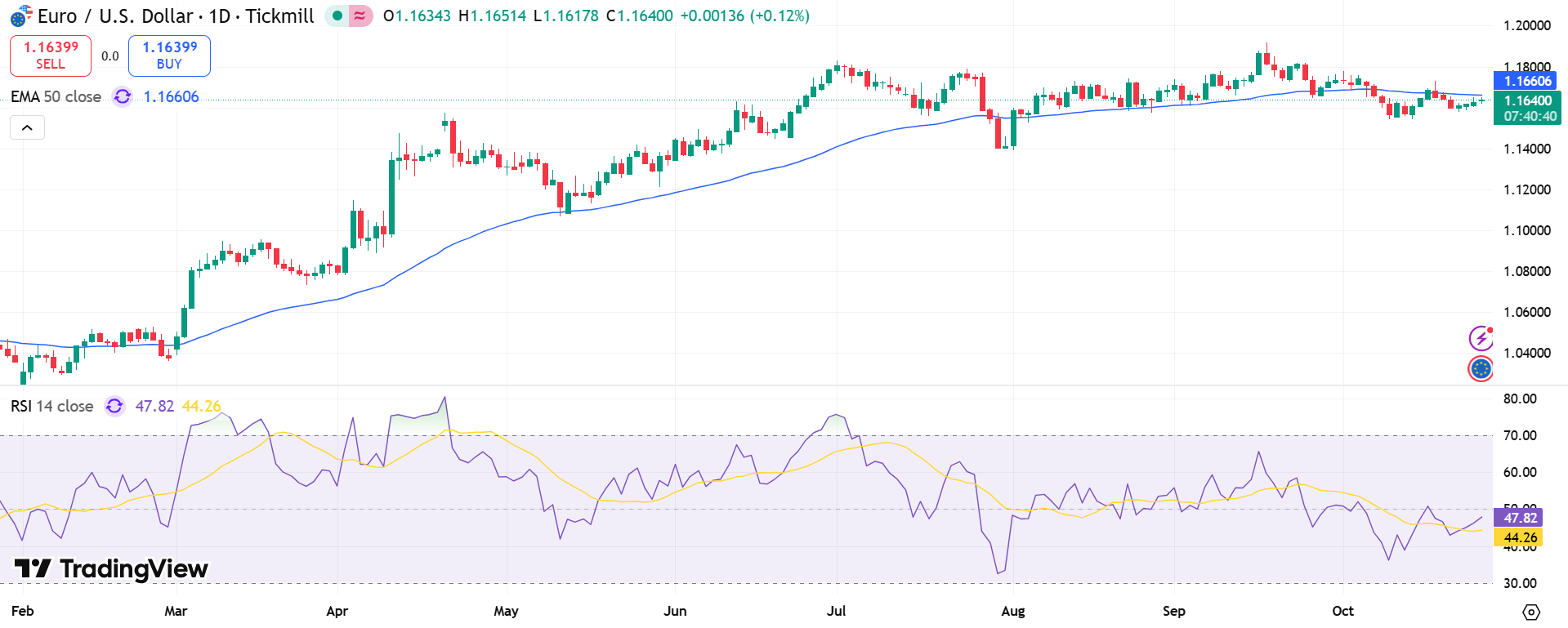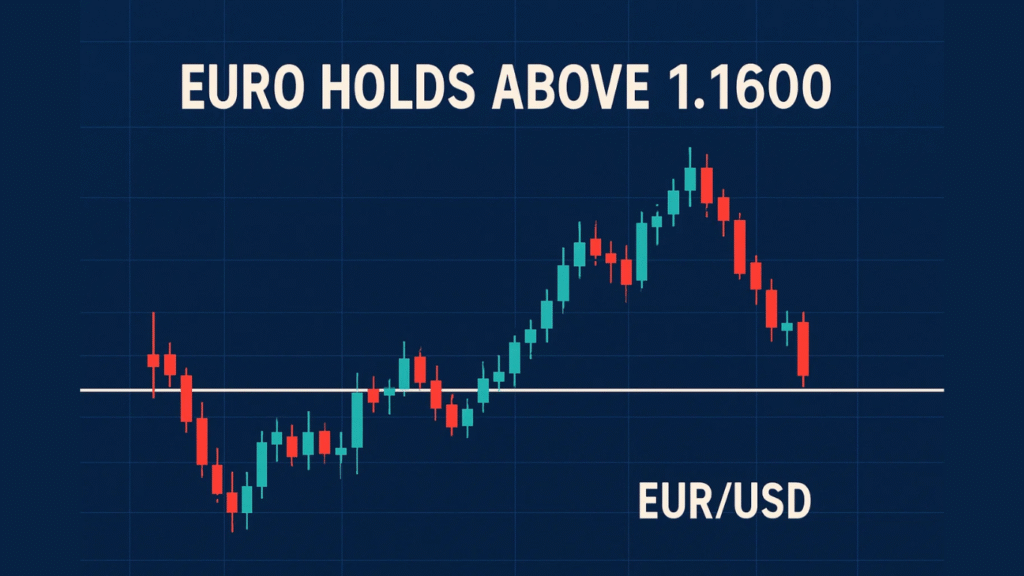The EUR/USD pair remained stable above 1.1600 on Monday, supported by a stronger risk appetite following signs of progress in U.S.–China trade negotiations. Investors’ optimism that the two economic giants could de-escalate their trade dispute limited demand for the U.S. dollar (USD) and helped the euro sustain recent gains.
At the time of writing, EUR/USD was trading near 1.1620, moving in a tight range as markets awaited fresh catalysts. The Relative Strength Index (RSI) hovered around the neutral 50 level, while the pair remained close to its 20-day Simple Moving Average (SMA), underscoring market indecision.
“Traders are responding positively to the improved geopolitical backdrop,” said Daniel Kovacs, an FX strategist at Franklin Advisory Group. “However, upcoming central bank decisions could quickly reshape short-term sentiment.”
On the technical front:
- Resistance levels: 1.1660 (100-day SMA), 1.1700 (Fibonacci 38.2%)
- Support zones: 1.1580 (61.8% retracement), 1.1550, and 1.1500
Dollar Weakens as Inflation Eases
The U.S. Dollar Index (DXY) slipped modestly after data released Friday showed U.S. inflation rose less than expected in September, reinforcing expectations that the Federal Reserve could proceed with rate cuts later this year.
According to the Bureau of Labor Statistics, annual Consumer Price Index (CPI) growth climbed to 4% in September, up slightly from 3.9% in August. However, both the headline CPI (+0.3%) and core CPI (+0.2%) readings came in below market forecasts, tempering fears of renewed price pressure.
“The inflation data provided a mild reprieve for the Fed,” noted Sarah Lin, senior economist at Global Macro Analytics. “It gives policymakers room to maintain a more accommodative tone heading into the next meeting.”
The softer inflation outlook pressured the greenback, particularly as investors pivoted toward risk-sensitive assets amid improving global sentiment.

Traders Eye U.S.–China Progress and Fed Outlook
Over the weekend, U.S. Treasury Secretary Scott Bessent confirmed that U.S. and Chinese negotiators reached a preliminary trade framework in Malaysia ahead of this week’s Trump–Xi meeting in South Korea. Bessent added that the deal could avert 100% tariffs on Chinese imports and include a “deferral clause” on planned Chinese export controls for rare earth materials.
The developments bolstered hopes of a trade truce, lifting equities and commodity-linked currencies while keeping the euro well-supported. However, analysts caution that EUR/USD may remain range-bound until clarity emerges from the Fed’s policy decision and the European Central Bank’s (ECB) next guidance.


